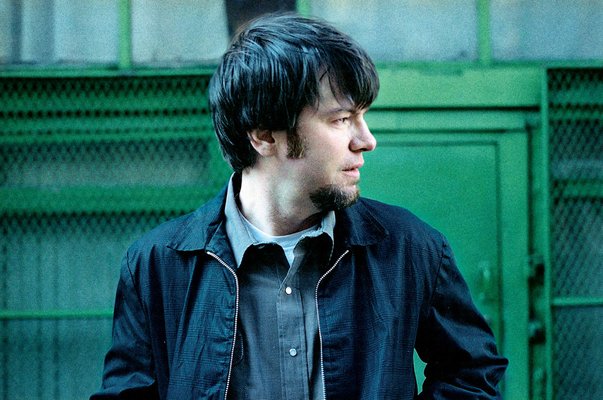As much as the studio approach needed to be different this time out to fit the songs on Narrow Stairs, Ben Gibbard’s song craft went back to square one. He explains: “As I look back on the writing process for Plans, I wasn’t feeling very inspired by my guitar. For some reason, I would pick up the guitar and immediately put it down, as if it were broken. I think that album had a lot of piano, because it was the first time I ever actually owned a piano. For the first time, there was this other option-this fantastic acoustic piano in my house! So most of those songs were written on piano, keyboard or in some kind of ProTools capacity…where I would take a little loop of something I had done and kind of constructed a song around it. I think that led to Plans not being very chorus-heavy. A lot of songs just had an A-A-A-B-A-A structure, without a lot of variation. So going into [Narrow Stairs], I made a conscious decision to want to sit down with the guitar and make sure they could all be played on an acoustic. And for the first time in an album or so, I was making sure all of the songs had choruses and taking more of a traditional approach to songwriting.”
Videos by American Songwriter
And despite reverting back to analog in the studio, Gibbard still very much embraces the luxury of writing on a computer. “There are an endless amount of options,” he says. “Like, ‘I’d love to hear what an acoustic guitar sounds like right here. Or, ‘What if I moved that line to a piano line?’ It’s so easy to kind of experiment, and I don’t know if I’d ever go back to writing on a four-track. Of course there’s the potential to get lost in the arrangement of a tune when you have 24 tracks on a computer to fiddle with.”
“For me, a song doesn’t really take flight until it has a lyric on it,” the DCfC frontman continues. “And that’s the hardest part. Until I can visualize what’s happening with the song…that’s the point where I really become inspired to move forward with the arrangement and the song itself. So there are times when I get really caught up in a really great instrumental part, and that happened this time out with a couple of songs that didn’t make the cut. And now I think, ‘I wish I had finished that one because it had such a great melody and a great guitar line.’ Without a lyric that I’m happy with, it could be the greatest song ever melodically or arrangement-wise, but it doesn’t have any resonance.”
Gibbard says his songwriting took the turn he felt it needed back around the band’s second album. “I keep coming back to “Company Calls Epilogue,” which is on our second album [2000’s We Have the Facts And We’re Voting Yes], and I had concocted this narrative of going to the wedding of someone that you used to be in love with…and I was very proud of the descriptive nature of the song. It focuses on all of these details of the experience that are not necessarily the first things that one would go to. It’s not about, ‘She looks beautiful in a white wedding dress;’ instead, there are lines about little kids chasing each other around and the feel of the wedding. It’s all of these secondary images. To me, that’s where I broke through as a songwriter and became less obtuse. That started my shift to becoming a far more narrative writer.”
To this day, he reveals that he has an ongoing fixation related to his songwriting. “I want to write songs with complete sentences,” he confesses. “I almost have this obsession with shortchanging words. I would never be so pretentious to say that my lyrics are poetry. That’s the most annoying things ever and one of my biggest pet peeves as a songwriter, when someone does that. That’s such bullshit. Poems are poems. Song lyrics are for songs. And when people have come up to me in the past to suggest my lyrics are poetic, my first reaction is to give them a talking to about it, while being as nice as I can. Like, ‘Frank O’Hara is a poet. Jeff Tweedy is a phenomenal songwriter-not a poet.’”











Leave a Reply
Only members can comment. Become a member. Already a member? Log in.